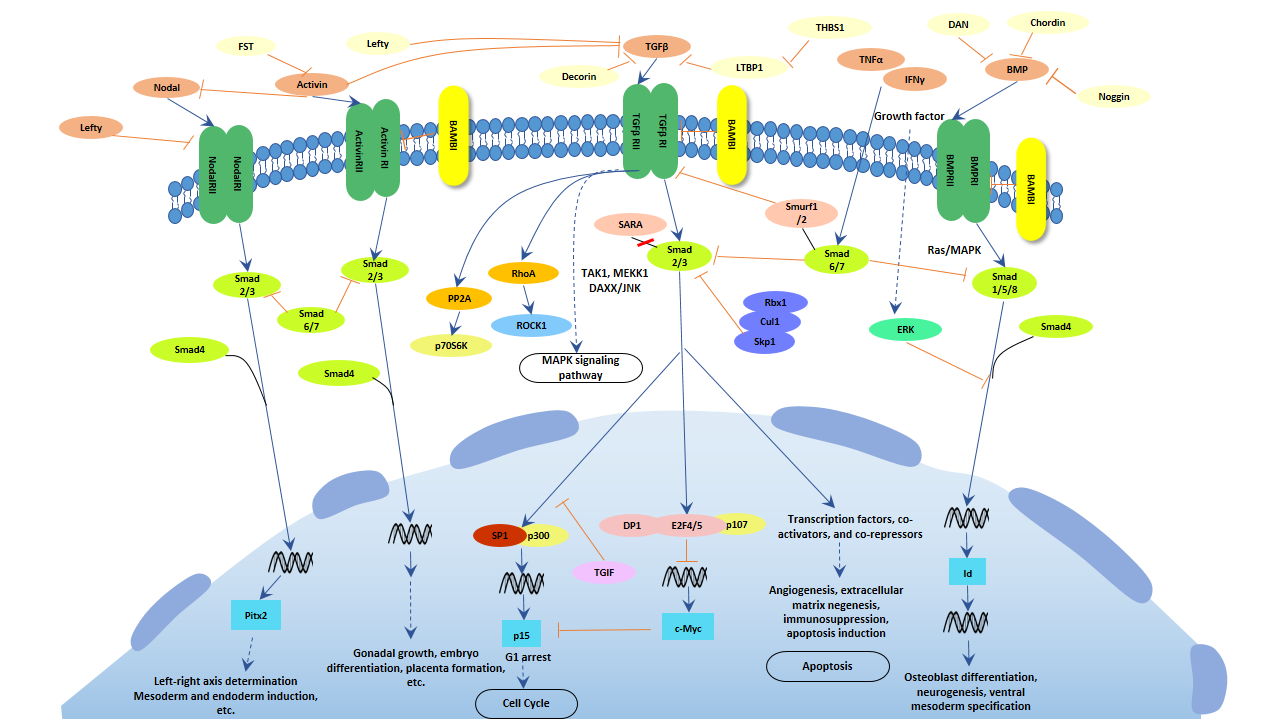
What is TGF-beta signaling pathway?
Transforming growth factor beta (TGF-beta) signaling pathway is a series of signal transduction processes mediated by transforming growth factor. TGF-β signaling pathway plays a key role in cell proliferation, interstitial production, differentiation, apoptosis, embryonic development, organ formation, immune function and inflammatory response.
TGF-beta superfamily
Transforming growth factor β (TGF-β) superfamily is composed of many genes which coding secretory protein, mainly includes TGF-βs, the growth and differentiation factor (GDF) subfamily, an extensive bone morphogenetic protein (BMP) subfamily, activin, inhibin, anti-muller hormone, follistatin (FS), mullerian inhibitor substance (MIS), etc, as well as several additional members such as myostatin (Mstn) cloned from mouse skeletal muscle. More details>>
The process of TGF-β signaling pathway
As shown in the following figure, a wide spectrum of cellular functions such as proliferation, apoptosis, differentiation and migration are regulated by TGF-beta family members. TGF-beta family member binds to the Type II receptor and recruits Type I, whereby Type II receptor phosphorylates and activates Type I.
The Type I receptor, in turn, phosphorylates receptor-activated Smads (R-Smads: Smad1, Smad2, Smad3, Smad5, and Smad8). Once phosphorylated, R-Smads associate with the co-mediator Smad, Smad4, and the heteromeric complex then translocates into the nucleus. In the nucleus, Smad complexes activate specific genes through cooperative interactions with other DNA-binding and coactivator (or co-repressor) proteins.
Double-Edged Sword: TGF-β
TGF-β is a growth factor with multi-function on target cells. Almost every cell in the body produces TGF-β and has its receptor. It plays an important regulatory role in the differentiation of tissues and cells, and can stimulate or inhibit the proliferation of various cells.
In addition, it has a significant impact on the body's immune system. They play an important role in tumorigenesis and metastasis. More details>>





